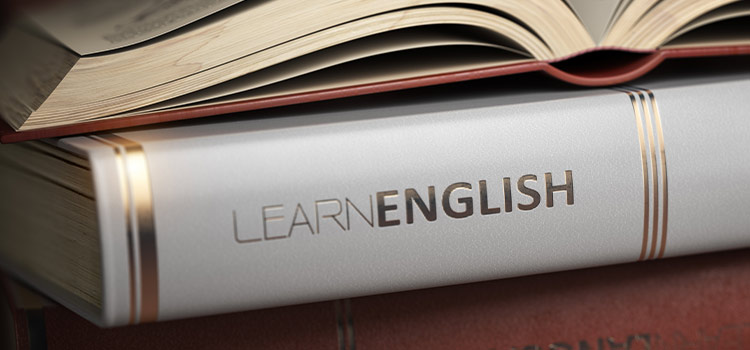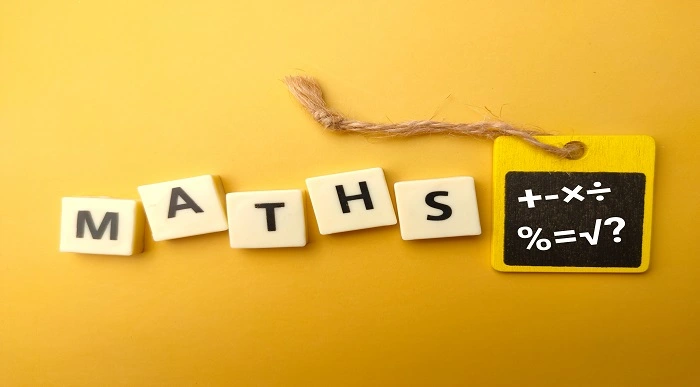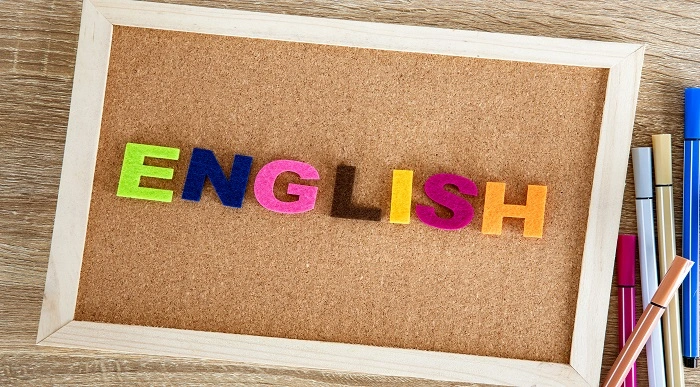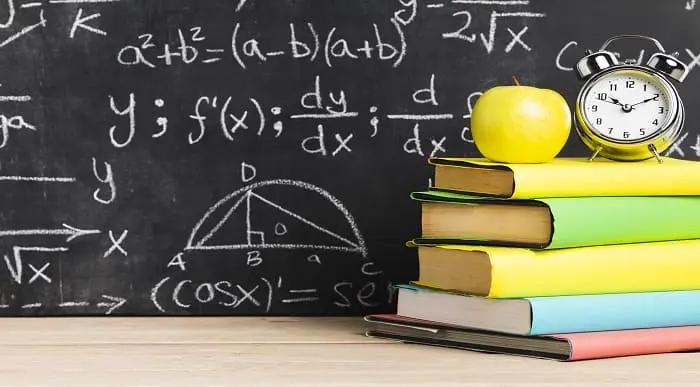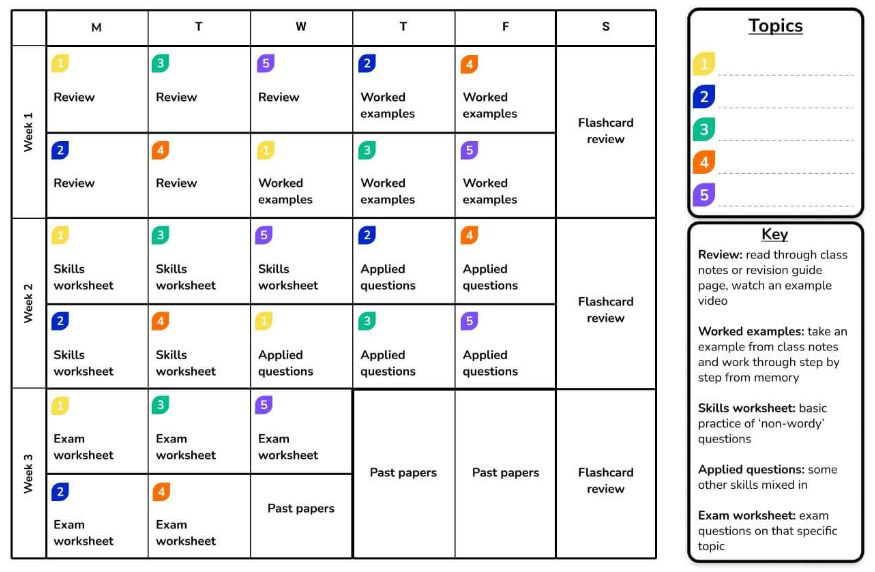GCSE
How to Revise for GCSE: Best Ways to Revise for GCSE (Step by Step Guide)
As the GCSE exam is knocking on the door, the fear of sitting for the exam might take over and give you anxiety. While it’s more or less common for every student to feel this way, knowing how to revise for GCSE can help you perform better and achieve your desired grade.
You might have already searched the “best way to revise for GCSE” on the internet. Before you get baffled by all those tips for GCSE revision from a hundred other sites, give a read to our blog that has been specifically written to help you build GCSE revision timetable, plan your study sessions and set your goals. We have come up with the most useful revision techniques GCSE needs and so, nothing can withhold your success now!
You should also check out our blog, “Edexcel GCSE Maths Specification” to get the best understanding of Edexcel GCSE Maths.
Table of Content
How to Revise for GCSE
Finding out the right technique to start revising for GCSE can be overwhelming. You might not even have the patience to look for the ways that best suit your learning needs. That’s why we are here to help you! Make your revision for GCSE easier by following our tips mentioned below-
GCSE Maths Revision
Before you kickstart your GCSE Maths revision, you first need to know the topics that are covered in GCSE Maths which are-
- Numbers
- Probability
- Statistics
- Algebra
- Geometry and Measures
- Ratio, proportions, rates of change
Now check out our GCSE Maths revision guide below to prepare yourself for the exam.
-
Practise
When the subject is Maths, there is no other better way to ace than to practise. This does not mean you need to indulge yourself into GCSE Maths and keep practising 24/7. Instead, go through the formulas often; make a routine to spend a specific amount of time on GCSE Maths revision everyday.
Also, consider practising the past papers; attempt the questions. This will help you to gain a better understanding of the question pattern and mark scheme. There are a number of past papers available online like AQA Maths past papers, OCR Maths past papers and WJEC Maths past papers from where you can practise.
-
Take notes
It is essential to take notes in class to go through them while revising for Maths GCSE. These notes can play a crucial part in remembering any tips or tricks for solving a problem.
That is why, while taking notes, concentrate on what your teacher is saying or writing on the board. Highlight any part of the note you find important. Make bullet points, write down everything in an organised fashion. This would help you to find the key points quickly at the last moment of your Maths GCSE revision.
-
Target doing it alone
You need to create the habit of doing the GCSE Maths without looking at the formula sheet. You can definitely look at the formulae at the initial stage of your revision, however, set a target of keeping it away the next time you revise. By doing so, you would get a good grip over the formulae and be confident during the actual exam.
If you are struggling with GCSE Maths, you can enrol in the GCSE Maths course of Lead Academy and avail tutor support.
GCSE English Revision
While many of you would find GCSE English the easiest subject among all and would not bother to revise properly, remember even the tiniest amount of negligence can result in a bad grade. The GCSE English has two papers with a Reading and a Writing section where you would get both fiction and non-fiction texts.
Explore a wide range of texts
An essential aspect of GCSE English revision is trying to acquaint oneself with a variety of texts. You can go through the eighteenth or nineteenth century texts that are available online. Reading different types of texts would introduce you to the complex sentence structures and grammatical forms. Also, this would improve your vocabulary.
Try practising text analysis
For the GCSE English “Reading” part, you would be asked to analyse unseen texts.
So, it is vital to practise analysing texts on a regular basis to achieve a grade 9.
Whenever you choose any extract from a text to analyse, identify the literary techniques and their effects. Try to understand the writer’s perspective; why that particular metaphor has been used, what the writer has tried to convey. Analysing texts would help you to be more insightful and understand the underlying meaning of any word or sentence.
Read enough to write better
The GCSE English “Writing” part forms almost 50% of the overall grade. So, you should learn how to write well to score a good grade. Extensive reading helps you to master the craft of writing. It gives you a clear image of a well-written sentence structure, word choice, punctuation and many more.
Choose some great piece of writing and read thoroughly to identify the techniques of writing well. Some students often fail to complete the writing section, so, you should prepare yourself to write fast. Generally, it is advised to spend about 45 minutes on this section.
You can find out the topics for writing from the past papers.
GCSE Biology Revision
The GCSE biology is broken down into eight key topics-
- Cell biology
- Organisation
- Infection and response
- Bioenergetics
- Homeostasis and response
- Inheritance
- Variation and evolution
- Ecology
There is a lot to understand and remember when it comes to GCSE Biology. If you can make your study sessions fun, only then you would find the subject interesting. Take a look at our GCSE Biology revision guide below.
Take help of visual aids
Visual aids can help students learn and remember complex topics in biology. For this, you can write down any formula or difficult term on cue cards and place them in front of your reading table to use as visual prompts. Also, you can simply highlight the keywords or make bullet points while revising GCSE Biology instead of putting a lot of effort into creating visual aids.
Review your notes
Consider going through your notes once again after you are done with your Biology class. This would allow your brain to internalise any difficult topic and help you to remember for the long term.
Repeat reading your notes at regular intervals so that by the time your exam comes, you would find them fresh in your memory.
GCSE Chemistry Revision
The GCSE Chemistry topics are-
- Atomic structure and the periodic table
- Bonding, structure, and the properties of matter
- Quantitative chemistry, chemical changes and energy changes
- The rate and extent of chemical change, organic chemistry
- Chemical analysis, the chemistry of the atmosphere and using resources
Have a look at our GCSE Chemistry revision tips.
Put emphasis on the fundamental topics
Most of the topics of GCSE Chemistry depend on the basic principles taught at the initial stage of the course. That is why you should have a clear concept of these principles. Revise these topics every alternate day to keep them fresh in your memory.
Work on the formulae and methods
For the GCSE Chemistry paper, you are expected to carry out certain calculations without being given the formula sheet or method. You must have a good grip over these formulae so that you can recall them quickly in the exam. The best way to remember these is to revise repeatedly.
Practise the required skills
Along with the core concepts of chemistry, you would also require mathematical skills and proper understanding of practical activities. Try to develop these skills through practice and make them a part of your revision process to ace in the exam.
GCSE Physics Revision
The GCSE physics syllabus includes-
- Energy
- Electricity
- Particle model of matter
- Atomic structure
- Forces
- Waves
- Magnetism and electromagnetism
- Space physics
Now find out the ways to revise for your GCSE Physics.
Go through the formulae
Just like GCSE Chemistry, you should know which Physics formulae will be given to you in the exam and which ones you need to learn. It is only with practice you can recall the correct formula and use it to answer a numerical question.
Familiarise yourself with different Physics question types
In the GCSE physics exam, you would find four types of questions: multiple choice, structured, close short answer and open response. Being familiar with these question types beforehand, you will gain the confidence to answer them in the exam.
GCSE Physics can be difficult, especially with those formulae and equations. You can check YouTube videos to get some help with your revision.
GCSE Revision Timetable
Having a revision timetable is an effective technique that you should follow during your GCSE revision. A revision timetable helps you to break down your study sessions into small chunks of time making it easy for you to study.
You must understand your learning style and decide a deadline to create a GCSE revision timetable accordingly. Break down each subject into small chapters and modules. Allocate the time you need for each subject and some extra time for the subjects you are struggling with. Do not forget to add breaks in between. Otherwise, you would get overwhelmed.
You can follow the template of the revision timetable provided below.
Best Revision Techniques for GCSE
- Starting early on your revision would give you an ample amount of time. The more time you get to revise, the more room you will have to go through each subject without needing to cram.
- Create a revision timetable. This will allow you to study in an organised fashion without cramming during the days leading up to your GCSE exam. You can also spend some extra time on the subjects you are struggling with.
- Set goals on what you plan to achieve by the end of the day. This will give you an idea of how much time you need to allocate for a particular subject and how many topics you can revise in a day.
- Work on the past papers. While doing so, you can create an exam environment by switching off your phone, closing the door of your room and keeping yourself away from any sort of distractions. In this way you won’t feel nervous in the actual exam hall.
- Take breaks. Studying at a stretch for hours can be counterproductive. You might also lose your focus and interest to study further. So, aim for 40-45 minutes study sessions and take breaks in between. Ideally, you shouldn’t spend more than 5 hours studying per day.
- Be easy with yourself. Do not bear the self-guilt thinking that “Why can’t I study more?” or “I’m not studying enough!” Give yourself positive affirmations that you can do it. Stay motivated.
Conclusion
Hopefully, you have figured out how to revise for GCSE after reading our blog. But, only having the idea of the revision tips won’t help you. You have to put in the effort and study sincerely. Only then you can achieve a grade 9 in GCSE.
FAQs
How to revise for Maths GCSE?
It is important to practice solving different types of problems and to understand the underlying concepts. Utilizing resources such as textbooks, past papers, and online tutorials can also be helpful in preparing for the exam.
When should you start revising for GCSE?
The sooner you start the better you can perform in GCSE. Ideally, you should start revising six months prior to the exam so that you can stay relaxed when the exam is near.
How to revise effectively for GCSE?
One effective way to revise for GCSE is to practice as many past papers and questions as possible. It is also helpful to identify areas of weakness and focus on improving those specific topics.
How many hours should you spend a day for GCSE revision?
Though it would vary from learner to learner depending on their learning style and needs, it is better not to spend more than 5 hours a day for GCSE revision.
What to Read Next:
- How To Get Maths GCSE Quickly
- Edexcel GCSE Maths Specification – A Comprehensive Guide
- List of Exam Boards UK
- What is Language Features Functional Skills?
- What is Functional Skills Maths Level 2 Equivalent To? Qualification
- IGCSE vs GCSE: What are the Differences & Which is Harder?
- GCSE Grade Boundaries – All Boards 2022-2023



